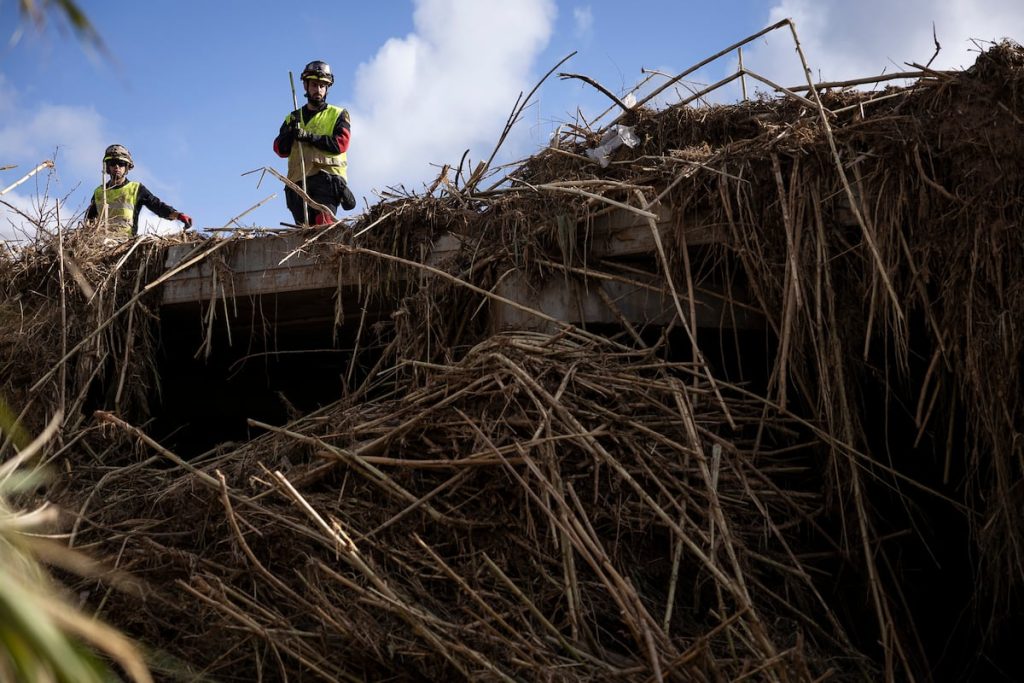The morgue of the Ciudad de la Justicia in Valencia has received 207 deceased victims since the occurrence of the dana, with 200 bodies having undergone autopsies. 167 of the bodies have been fully identified, with 140 being identified by fingerprints and 27 by DNA. 40 deceased persons still remain unidentified according to the latest data from the Centro de Integración de Datos (CID). The National Police and the Civil Guard, along with forensic doctors, are currently handling 78 active cases related to missing persons. Additionally, on Thursday, the declaration of a catastrophic zone and the first package of aid for those affected by the dana have come into effect. The government has extended the deadline for aid applications from one month to two months, allowing applicants to submit requests until January 7, 2025. Furthermore, the PP’s parliamentary spokesperson, Miguel Tellado, mentioned that there will be a time for political evaluations of the handling of the dana, and that it is up to the President of the Generalitat, Carlos Mazón, to provide explanations regarding his agenda on the day the emergency began. Mazón arrived at the Cecopi meeting two hours late on October 29, citing a prior work-related lunch engagement as the cause.
Amidst the aftermath of the dana, the city of Valencia continues to mourn the loss of many lives. The significant number of victims has required the combined efforts of various authorities and professionals to manage the identification and processing of the deceased. The ongoing collaboration between law enforcement agencies, medical examiners, and forensic experts reflects the urgency and complexity of the situation. The high number of unidentified bodies accentuates the challenges faced in reconnecting families and providing closure to those affected by the tragedy. The activation of support measures and the declaration of a catastrophic zone symbolize the recognition of the scale of destruction and the need for immediate assistance to rebuild and recover.
The tragic events surrounding the dana have raised questions about the response and preparedness of government authorities in handling such emergencies. The delayed response of certain officials, including the President of the Generalitat, has sparked criticisms and demands for accountability. The postponement of political evaluations in favor of providing aid and support to the affected communities reflects the priority placed on addressing the immediate needs of the population. The extension of the deadline for aid applications aims to ensure that all eligible individuals have the opportunity to access necessary resources and assistance in the aftermath of the catastrophe.
The impact of the dana extends beyond the loss of lives and includes significant damage to infrastructure, property, and livelihoods. The designation of the affected areas as catastrophic zones signifies the severity of the destruction and the long-term consequences for residents and businesses. The provision of financial aid and support programs is crucial in aiding the recovery and reconstruction efforts, as communities strive to rebuild and regain stability. The commitment to providing assistance and resources to those affected reflects a collective response to a devastating natural disaster and a commitment to solidarity and resilience in the face of adversity.
As the community grapples with the aftermath of the dana, the focus remains on supporting and aiding those affected by the disaster. The ongoing efforts of emergency responders, volunteers, and government agencies underscore the unity and solidarity in times of crisis. The continued collaboration and coordination in managing the aftermath and addressing the needs of the population are essential in navigating the challenges posed by the catastrophe. The commitment to transparency, accountability, and support for the affected communities highlights the resilience and determination to overcome adversity and rebuild stronger in the face of tragedy.















